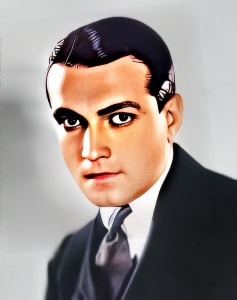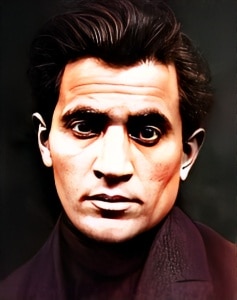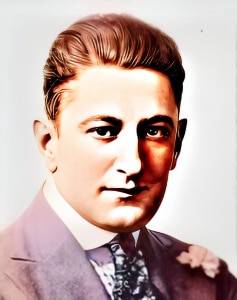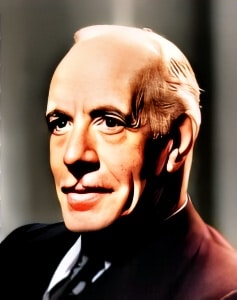 Snitz Edwards, born Louis K. Fraina on January 1, 1862, in Hungary, was a comedic genius of silent cinema.
Snitz Edwards, born Louis K. Fraina on January 1, 1862, in Hungary, was a comedic genius of silent cinema.
His distinctive appearance and comedic timing made him a beloved figure in the early years of Hollywood. One of the notable moments of his career came with his role in the film “ Souls for Sale” (1923), directed by Rupert Hughes.
Edwards’ journey into the world of entertainment began in vaudeville and on the Broadway stage. His natural talent for comedy, combined with his expressive face, quickly made him a sought-after performer in New York City. This theatrical background provided him with a solid foundation in comedic acting, which he seamlessly transitioned into silent film.
In the early 1910s, Snitz Edwards made his screen debut in “The Man Who Couldn’t Beat God” (1914). His unique appearance, characterized by a distinctive mustache and wide, expressive eyes, made him easily recognizable to audiences. He possessed a remarkable ability to convey humor and charm through his physicality and facial expressions.
One of the highlights of Snitz Edwards’ career was his role in “The Marriage Circle” (1924), directed by the legendary Ernst Lubitsch. Edwards portrayed Dr. Braun, a bumbling yet endearing character. The film received critical acclaim and was a commercial success, with Edwards’ performance being a major contributor to its charm. His skill in bringing humor and humanity to his characters endeared him to both audiences and critics.
Edwards’ talents extended beyond acting, as he was also an accomplished writer. He penned several screenplays during his career, adding depth and wit to the films in which he appeared. His contributions as a writer showcased his versatility and creativity as an artist.
Another memorable chapter in Snitz Edwards’ career was his role in “The Thief of Bagdad” (1924), directed by Raoul Walsh. In this film, he played the role of Grand Vizier Jaffar, a scheming and comical character. Edwards’ performance added a layer of humor and intrigue to the story, complementing the grand adventure and spectacle of the film.
Despite his successes in silent cinema, Snitz Edwards faced the challenge of transitioning to sound films in the late 1920s. His distinctive voice and well-practiced comedic timing allowed him to adapt successfully to the new medium. He continued to make audiences laugh and brought his unique brand of humor to sound films like “Our Modern Maidens” (1929).
One of the standout moments of Edwards’ career was his role in “ Souls for Sale” (1923). Directed by Rupert Hughes, the film is a captivating portrayal of the early days of Hollywood and the dreams of aspiring actors. Edwards’ character added depth and authenticity to the narrative, and his comedic skills enhanced the film’s charm. “ Souls for Sale” remains a testament to his ability to convey the essence of Hollywood during its formative years and his talent in embracing the evolving world of cinema.
Snitz Edwards’ enduring presence on screen, coupled with his ability to make audiences laugh, secured his place as a beloved figure in early Hollywood. His combination of physical comedy and witty dialogue added depth to his characters, making them memorable and endearing.
Snitz Edwards’ career in Hollywood left a lasting legacy in the world of silent and sound cinema. His ability to evoke laughter from audiences and his creative contributions as a writer solidified his place in the pantheon of early film comedians. He remained a beloved and respected figure in the history of American cinema, leaving behind a body of work that continues to be celebrated and enjoyed by film enthusiasts and historians.
Loading live eBay listings...




